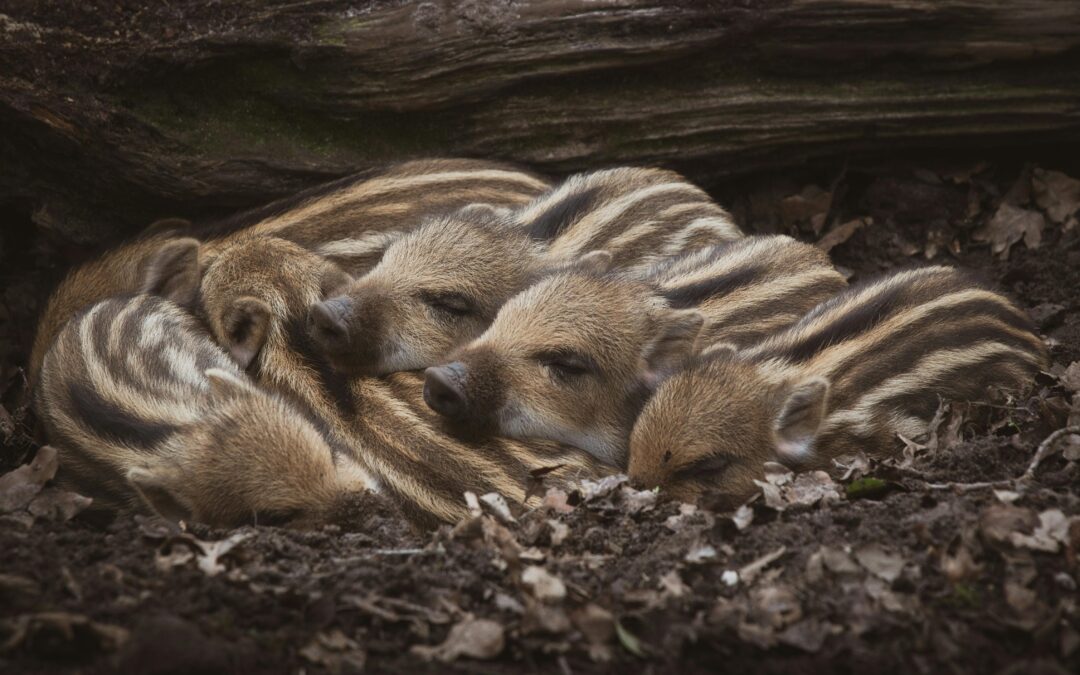
by Lee H. | Nov 23, 2024 | Climate Action Committee
It’s often said that it takes more muscles to frown than to smile. There is an inherent simplicity and ease in smiling. To love, likewise, is simpler than to create distractions from love. Peace, too, is the simple way. Simpler than war, simpler than hate, simpler than the endless desire to dominate that humanity so often displays.
In a world entangled with complex human systems that introduce increasing levels of chaos into our lives, it’s simplicity that offers an appealing path forward. There is wisdom in simplicity, and it calls us to live a life aligned with it.
Instead of structuring our society on tiered systems of wealth or clout, simplicity calls us to seek out ways of living in harmony with our planet and all who inhabit it. We’re interconnected – not only as members of our communities, but also as part of Earth’s broader ecosystem. Our individual and collective actions impact not only our immediate lives and communities, but our planet as a whole. Consumerism – the quest for the newest, the best, the most – diminishes planetary resources while simultaneously increasing pollution and global warming. It also oppresses communities around the globe who struggle under the pressure of exploitative economic systems that prioritize profits over people.
“The Earth is what we all have in common.” That’s Wendell Berry, the farmer and author, speaking to finding unity in the power of each other and our Earth. We are interdependent; no one is complete apart from the rest. How often and how deeply do we acknowledge our beautiful, sacred connections?
Buildings may crumble into the rising seas or human wars. Yet nature endures – a powerful force striving always to regenerate and heal. When we side with the power of nature, the effects can be impressive. One vivid example is the resilience of mangrove forests. After deforestation, corridors of mangroves along a river can regenerate fully within mere decades. This is a testament to the Earth’s ability to renew and heal itself. When we listen closely, we hear Earth calling us to follow its lead and do the same in our communities.
Continuing Revelation
We have come to understand the importance of native gardening. We appreciate all that happens when nature thrives on its own terms.
And we have come to understand that some people are not to be owned, controlled, resocialized, or exterminated by others. We now know the Doctrine of Discovery was a profound mistake, advanced by European settlers who misused religion to justify it. Continuing revelation brought us to understand and support reparations for those our ancestors have exploited.
Will we similarly come to rue humanity’s systematic exploitation of living communities beyond our species? Given that we have no b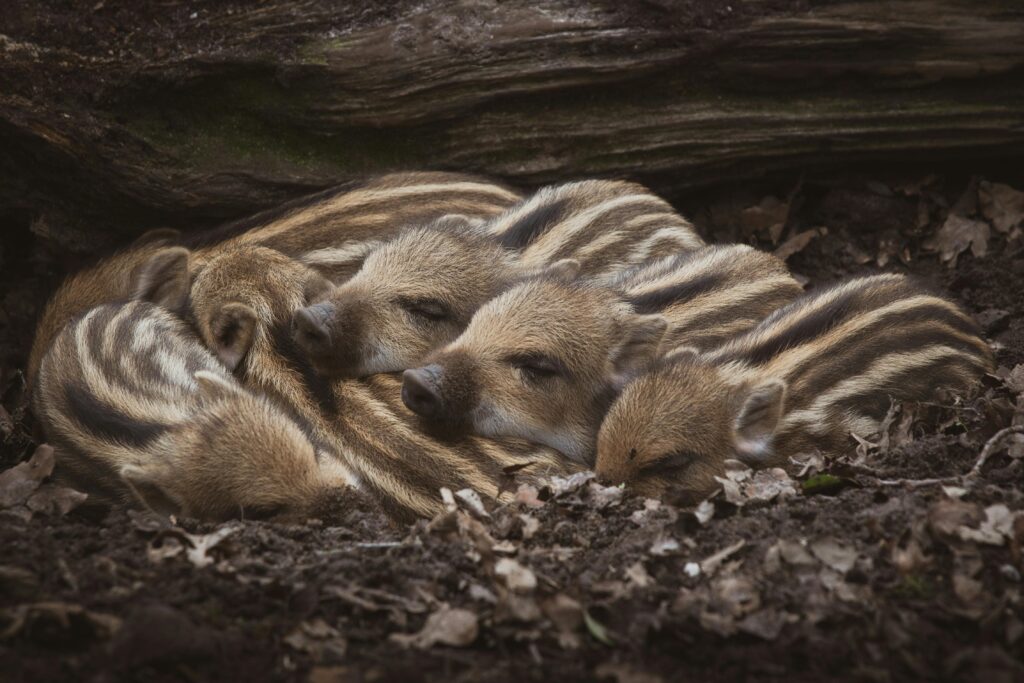 iological need for this habit, is it, too, relinquishable? Imagine how different, how much freer, our living Earth would be if we stopped chasing, confining, and commercializing other beings—and if we simply grew food, not feed. This would support a resurgence of biodiversity and help us coexist with Earth’s climate system. It would also relieve some of the least privileged among us from the work of repetitive killing, along with the resultant injuries and traumatic stress.
iological need for this habit, is it, too, relinquishable? Imagine how different, how much freer, our living Earth would be if we stopped chasing, confining, and commercializing other beings—and if we simply grew food, not feed. This would support a resurgence of biodiversity and help us coexist with Earth’s climate system. It would also relieve some of the least privileged among us from the work of repetitive killing, along with the resultant injuries and traumatic stress.
As inhabitants of Earth, we are given a sacred calling – to sustain our world and all its living beings. As Earth itself teaches us, the best approach is not domination, but simplicity.
We’re part of this society, yet also of Earth’s web of life. We imagine how much better we could be at sensing this, and how soon the results could be observable, and what a relief it would be to see the transformation.
We imagine the type of world we could inhabit if we, both environmentally and socially, truly embraced simplicity, solidarity, and love. By treating all living communities and our planetary systems with respect, we could foster societies where division, war, and strife are replaced by peace. For peace is a principle that promotes love over division, and solidarity over hierarchy.
We thank you so much for reading this far, and look forward to connecting with those who feel called to contribute to the urgent work of our time. Our Climate Action Committee is advancing dialogue to inspire actionable commitments to a more sustainable and equitable humanity. We’re eager to explore our transformative potential together.
By SJM and Lee Hall
Climate Action Committee
—
Photo credit: Vincent M.A. Janssen (Pexels/Canva).

by Lee H. | Nov 9, 2024 | Upcoming Events
Radnor’s Climate Action Committee and Outreach Committee have joined forces to invite our community and friends to attend the opening performance of The Return of Benjamin Lay, a play by Marcus Rediker and Naomi Wallace. The production features the Quintessence Theatre Group in residence at the Sedgwick Theatre in Mount Airy, Philadelphia.
An update on transportation for the evening of Thursday, May 1, 2025: The first bus we have dibs on holds eight people. We’ll continue planning transit as we receive commitments. Reserve a seat on a first come, first served basis.
Please let us know if you plan to go and if you hope we can reserve a bus seat for you.
Mail Lee Hall of our Climate Action Committee at climatelaw[AT]me.com to say
“I am committed to going with the group on May 1, 2025. I do not need / do hope to go in group transit.”
or
“I already bought my ticket! I do not need / do hope to go in group transit.”
Please sign up even if you’re taking your own transportation. We are looking for a number to give Quintessence management so we can participate in a talkback session following the performance.
Here’s more about the production from the Quintessence website:
A 4ft tall “Little David” confronts the “Goliath” of slavery once again as he pleads to be readmitted into the Quaker community that has disowned him and who still believe him to be dangerous. Now, “trembling at the edge of playing God himself”, how far will Benjamin go as he stares down his accusers? Continuing a unique decade-long collaboration between multi-award-winning playwright Naomi Wallace and multi-award-winning historian Marcus Rediker, featuring acclaimed American actor Mark Povinelli and directed by RSC Honorary Associate Director Ron Daniels, The Return of Benjamin Lay sweeps across the centuries in a bold exploration of an utterly impossible man.
Text and graphic featuring Mark Povinelli as Benjamin
from the play. Artwork depicting Benjamin Lay on our home page is by Vance Lehmkuhl.
by Lee H. | Apr 24, 2024 | Climate Action Committee
EMERGE (click on the word to open PowerPoint in Windows) is a slide deck first presented at our fellowship gathering on Sunday the 21st of April 2024, featuring the photography of Michael Zager. Much more about EMERGE (which we hope you will help develop) on a new interactive website now in the web design stage. This could be a visual brochure of that project. Enjoy.





















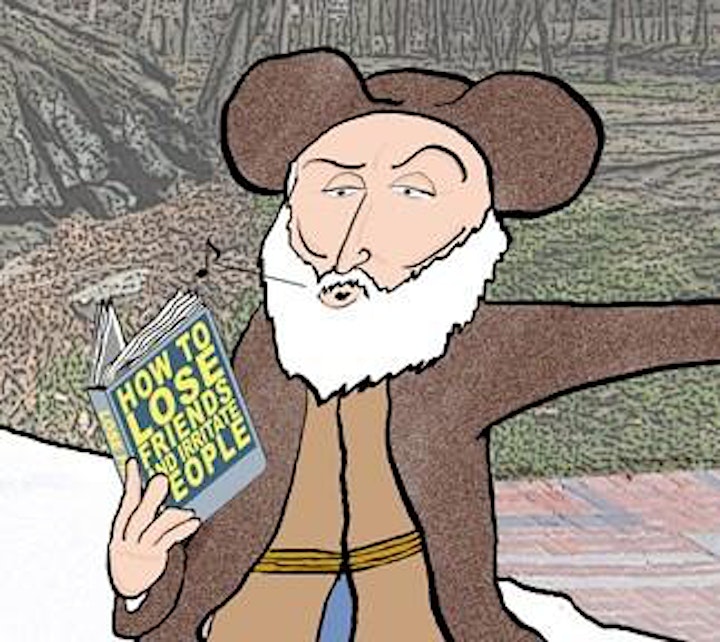
by Lee H. | Mar 1, 2024 | Past Events

Benjamin Lay, by Vance Lehmkuhl
The Climate Action Committee introduces our guest forum presenter Vance Lehmkuhl on Mar. 17.
A WIDER CIRCLE OF CARE: THE VISIONARY ECOLOGY OF EARLY QUAKER ABOLITIONISTS
March 17 is the day! Join us at the Rise of Meeting, in the Meetinghouse or via Zoom, as tour guide Vance Lehmkuhl leads our exploration.
Brush up on your Benezet,
Get ready for Benjamin Lay.
From the book and sword,
To an Earth restored,
These champions still show us the way.
Longtime Philly resident Vance Lehmkuhl, director of the American Vegan Center, is a former newspaper columnist, a cartoonist, a book author, and an active member of the Association of Philadelphia Tour Guides.
Vance designs Old City tours and cartoons that feature early Quakers, bringing their work for social fairness, radical simplicity, and spiritual clarity to contemporary audiences. Currently, Vance is developing a Philadelphia tour focused on Anthony Benezet…in French.
The Climate Action Committee of Radnor Meeting would love to anticipate your presence at this unique and engaging forum, happening Sunday March 17. Time: Approximately 11.20am – 12.20pm. To join, You can access the Zoom forum through this link. All are welcome! Or find the link from our home page to click through to the Zoom portal.
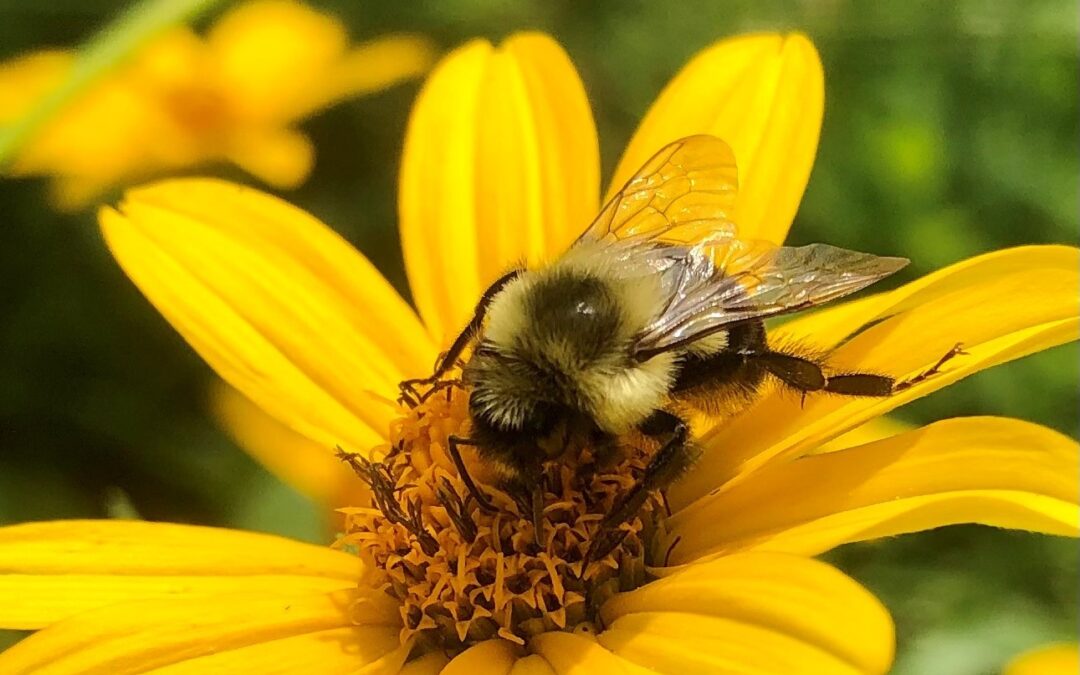
by Lee H. | Feb 8, 2024 | Climate Action Committee
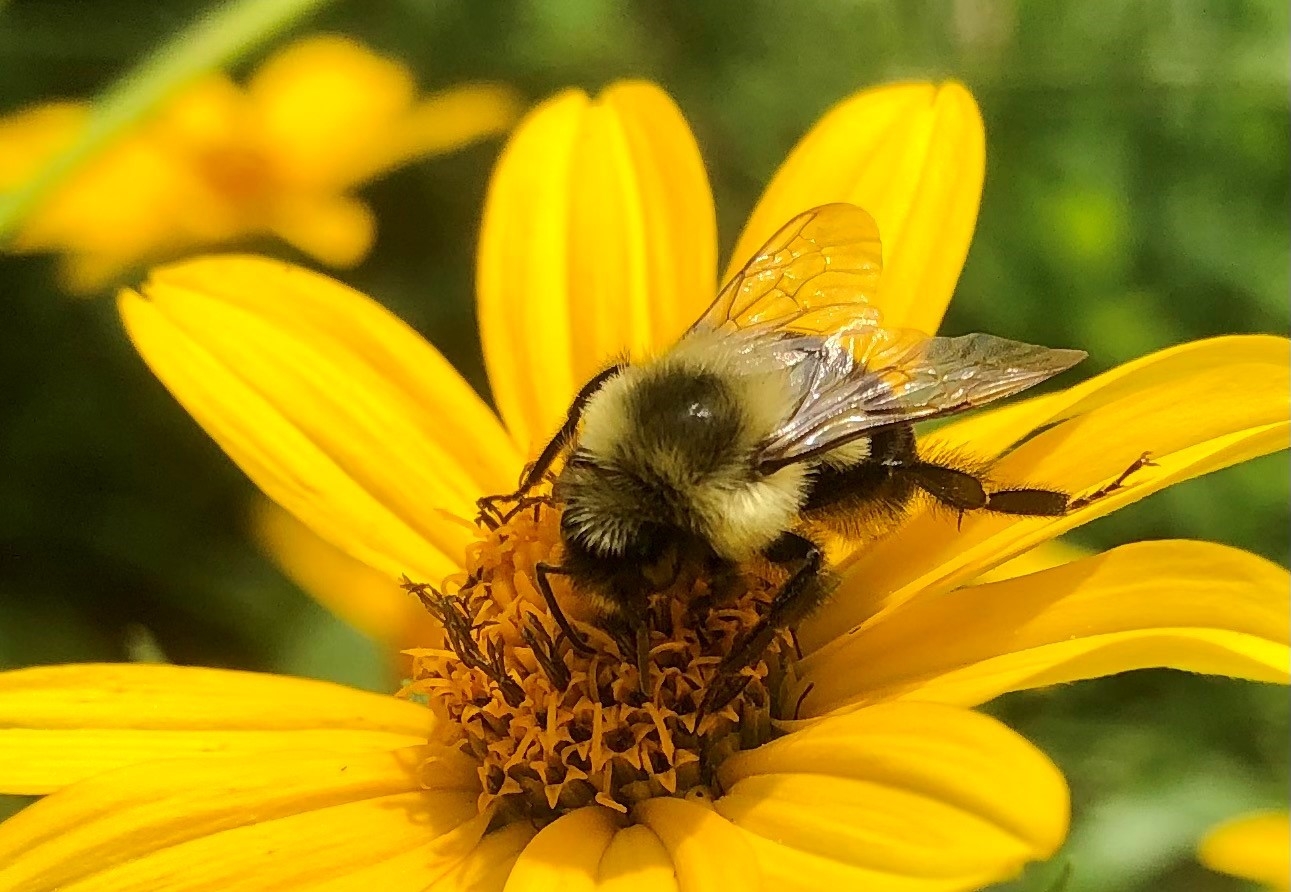
Today we’d like to talk about a good starting plan for landscaping modification, with some observations from Doug Ross, who is offering vital know-how and experience.
This task is important to do, and it will bring rewards. Here’s why.
The Climate Action Committee notes Pennsylvania State Representative Melissa Shusterman’s proposed “Lawncare Taskforce to Combat Emissions.” As an aside, can we find less bellicose vocabulary? It seems our society wants to combat or to war on something to prove we take it seriously. As a matter of peace-seeking, we want to work with and preserve our climate to the extent possible, not fight its attempt to seek balance, right?
OK, back to the matter at hand.
A few weeks back, rep. Shusterman wrote in an email blast: “Did you know that operating a commercial gas leaf blower for one hour releases the same amount of air pollution as driving a car for 1,100 miles?” PennEnvironment’s recent study on the impact of leaf blowing came out with “staggering” data that prompted Shusterman’s mission “to phase out gas-powered equipment without impacting businesses and jobs”—a mission that Radnor Meeting could get behind.
A Radnor Meeting Pollinator Patch: Less Gas, More Bees
The Landscape Committee has been communicating about creating a beautiful demonstration wildflower patch. A starter wildflower garden will benefit pollinators and effectively absorb storm run-off.
Keith suggested a modest strip along the playground fence, visible on a walk to the First Day School and Montessori School.
Doug intends to put leaf cover on a small patch, and carry out early care and perhaps a bit more planting, perhaps in collaboration with Main Line Montessori.
As this unfolds, we can project the work through social media, maybe even for the Radnor Township newsletter…And we can keep our sights on a local Eco-Friendly Yard award to bring attention to our work and the township’s. Surely the township should be encouraged for what it’s trying to do.
Phasing Out the Mower
About getting past the leaf-blowers and lawn chemicals, Doug says:
The best solution is to turn most of your lawn into a no mow zone, meadow or best of all into a wildflower preserve. Ironically, the wildflower preserve turns out to take the least amount of time and energy in the long run when compared to all the alternatives—including regular lawns. Here I must emphasize the LONG RUN since properly establishing an attractive and functioning wildflower garden requires care and attention in the first year. Usually it takes a couple of years for the plants to develop a deep root system and to become thick enough to prevent space for weeds to invade. After becoming established the wildflower plot is very low-maintenance.
Great to know what we’ll be looking at. This plot will need to be mowed only once a year (probably after the birds have taken advantage of the seeds over the winter), explains Doug.
Doug plans to bring a mix of resilient wildflower seeds designed to blossom from late May to October. Doug is asking for a helper and a small load of mostly weed-free topsoil.
“Thanks for spreading the word about the importance of fall leaves!” writes Doug. Take a look at the great synergy with Doug’s work at Foulkeways:
Our Environmental Stewardship Committee here at Foulkeways is making some progress in spreading the “Leave leaf lie philosophy” as well as expanding our no mow zones, meadows, wildflower gardens, and “Tiny Forest” areas (that rely on leaf mold mulch until our ground covers are well established).
The Year of the Dragon could be a great one for environmental awareness at Radnor. Let’s go!
On 8 Feb 2024, Doug sent this update:
After consulting with Keith, we agreed that I could establish a small demonstration wildflower patch outside the playground fence. About a month ago, my friend and Foulkeways neighbor, Mary K. Lyman gave me a ride to Radnor (on her way to visit a nearby friend). I proceeded to remove the turf and weeds from an approximately 2′ by 8′ strip. I hauled the turf and weeds down the hill to the woods, spread out the material and covered it with leaves. I mixed in a bucket of compost from Foulkeways and a few buckets of loam that I dug out from under the leaf piles in the woods. I raked out the area carefully and spread a mix of perennial wildflower seeds that are endemic (native) to this region. Then I spread some shredded leaf mulch over the whole area. Even though the area is nestled in a line between two groups of shrubs, I pounded in stakes to which I tied a green string to signal the mowers to stay out until early next spring (for the annual mowing). In any case, I believe Keith has informed the landscape contractor to avoid mowing the designated area until next spring. I completed my work by weeding the nearby beds.
Knowing that in the first season, perennials put more energy into establishing roots than putting out blossoms, I returned last week and sprinkled two types of seeds from self seeding annual plants. This will ensure color in the first season. While I was there I noticed the string had been cut and one of the stakes fell down. I repaired the damage, but hopefully someone who is more local can bring a heavier mallet or hammer to pound the stakes down more firmly.
The seeds will scarify during the remaining cold weather and should germinate after an extended warm spell heats the soil. After the plants have grown several inches, the plot will benefit by fifteen minutes or so of weeding. Hopefully the spring rains and nourishing soil will produce a pleasing display for humans, but more importantly a haven for pollinators.
One final note is the distinction between wildflower garden and meadow. Generally weed/turf removal is more thorough when establishing a wildflower garden. However, the biggest difference is that the higher density planting of colorful wildflowers can be expected to require less maintenance to keep out invasive weeds than is the case for meadows. My hope is that the learnings from this project will guide Radnor Friends to find ways to replace lawn areas with more ecological uses.
Blessings
Doug
[Banner image: Bumble bee on bright yellow wildflower in a Pennsylvania meadow, by Lee H.]

 iological need for this habit, is it, too, relinquishable? Imagine how different, how much freer, our living Earth would be if we stopped chasing, confining, and commercializing other beings—and if we simply grew food, not feed. This would support a resurgence of biodiversity and help us coexist with Earth’s climate system. It would also relieve some of the least privileged among us from the work of repetitive killing, along with the resultant injuries and traumatic stress.
iological need for this habit, is it, too, relinquishable? Imagine how different, how much freer, our living Earth would be if we stopped chasing, confining, and commercializing other beings—and if we simply grew food, not feed. This would support a resurgence of biodiversity and help us coexist with Earth’s climate system. It would also relieve some of the least privileged among us from the work of repetitive killing, along with the resultant injuries and traumatic stress.

























